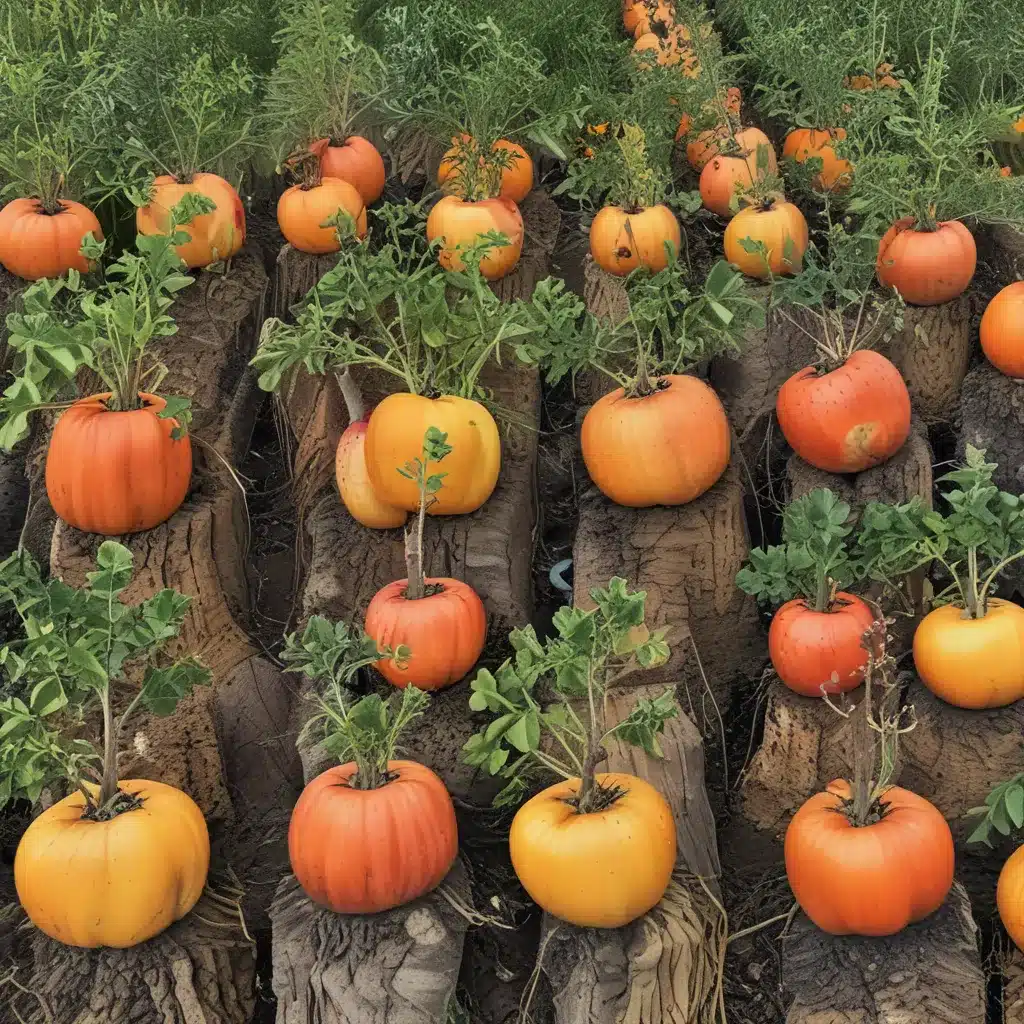
As a proud member of the Thornapple Community-Supported Agriculture (CSA) family, I’ve witnessed firsthand the remarkable transformation this farm has undergone in recent years. From its humble beginnings as a small, family-operated business to its current status as a beacon of sustainability and resilience, the Thornapple CSA has truly become a shining example of how community-driven agriculture can thrive in the face of a changing climate.
Tackling Climate Challenges with Innovation
When I first joined the Thornapple CSA, I’ll admit I was a bit skeptical about their ability to weather the storms of our ever-evolving climate. But as I immersed myself in the rich tapestry of this community, I began to see just how innovative and forward-thinking the team at Thornapple really is.
Recent studies have highlighted the growing threat of climate change to our region, with increased frequency and intensity of extreme weather events, shifting precipitation patterns, and rising temperatures all posing significant challenges to traditional farming practices. However, the Thornapple CSA has proactively embraced these challenges, pioneering a suite of climate-smart strategies that have not only safeguarded their operation but also inspired others in the community to follow suit.
Diversifying Crop Portfolios for Resilience
One of the most striking aspects of Thornapple’s approach is their commitment to diversifying their crop portfolio. Rather than relying on a narrow selection of produce, they have painstakingly curated a diverse array of hardy, adaptable crops that can withstand the fluctuations of our changing climate.
“It’s all about building resilience,” explains Sarah, the head farmer at Thornapple. “By diversifying our crops, we’re essentially hedging our bets against the unpredictable weather patterns we’ve been experiencing. If one crop fails due to a sudden drought or unseasonal frost, we have others to fall back on.”
Integrated pest management practices have also played a crucial role in Thornapple’s success, as the team has implemented a comprehensive strategy to mitigate the impact of pests and diseases on their diverse crop selections. By embracing natural, organic solutions and fostering a healthy, balanced ecosystem, they’ve been able to reduce their reliance on harmful pesticides while still maintaining robust yields.
Embracing Regenerative Farming Techniques
But Thornapple’s climate-smart approach extends far beyond crop diversification and integrated pest management. The farm has also wholeheartedly embraced regenerative farming techniques, which aim to rebuild and revitalize the soil, rather than merely extracting resources from it.
“It’s all about working in harmony with the land, rather than against it,” says Sarah. “We’ve implemented a range of practices, from no-till cultivation to cover cropping, that help to improve soil health, increase water retention, and sequester carbon from the atmosphere.”
These efforts have not only bolstered the resilience of the Thornapple farm but have also had a tangible impact on the surrounding community. Local studies have shown that the adoption of regenerative farming techniques can have a positive ripple effect, improving water quality, reducing flood risk, and enhancing biodiversity in the surrounding areas.
Fostering Community Connections
But the true secret to Thornapple’s success lies in its unwavering commitment to community engagement and education. As a community-supported agriculture service, the farm has always placed a strong emphasis on fostering deep connections with its members, and this has become even more critical in the face of climate change.
“We see our members as more than just customers,” says Sarah. “They’re partners in this journey, and we work hard to keep them informed, involved, and empowered to make sustainable choices.”
Through a variety of outreach initiatives, the Thornapple team has been able to share their knowledge and expertise with the broader community, inspiring others to adopt climate-smart practices in their own gardens, farms, and households. From hands-on workshops on composting and seed saving to interactive farm tours and cooking demonstrations, the Thornapple CSA has become a hub of learning and collaboration.
Cultivating a Sustainable Future
As I reflect on my time with the Thornapple CSA, I can’t help but feel a sense of awe and optimism for the future. In a world that often feels overwhelmed by the challenges of climate change, this farm has proven that it’s possible to not only adapt but to thrive in the face of adversity.
Through their innovative, community-driven approach, the team at Thornapple has shown that sustainable, climate-smart agriculture is not only possible but essential for the health and well-being of our planet. And as I continue to support this remarkable CSA, I know that I’m not just enjoying delicious, locally-grown produce – I’m also investing in a future where resilient roots and thriving communities go hand in hand.
So, if you’re looking to make a positive impact on the world around you, I encourage you to explore the Thornapple CSA and see for yourself how community-driven, climate-smart agriculture can transform not just our plates, but our entire way of life.



